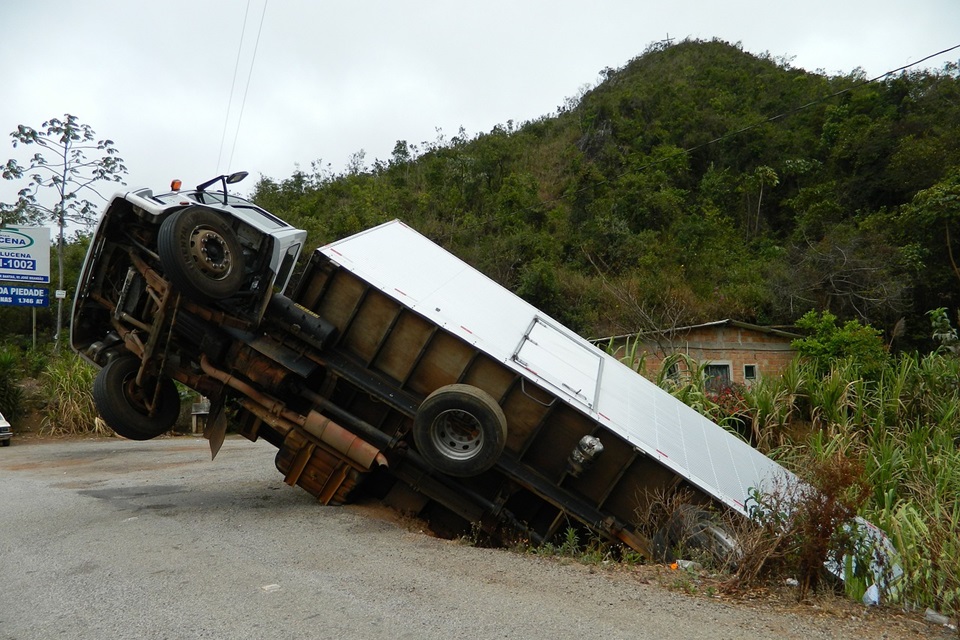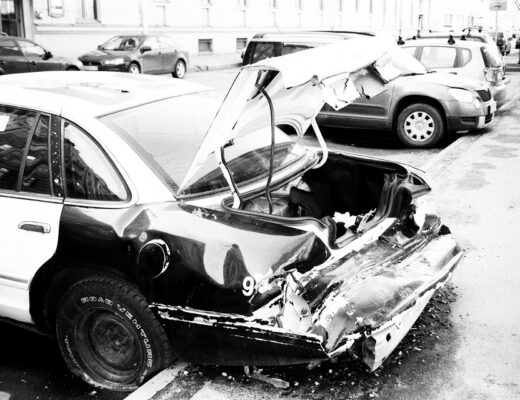While both car accidents and truck accidents can cause serious injuries and property damage, the nature of these collisions is inherently different. Understanding these key distinctions is crucial, especially if you’ve been involved in an accident with a large commercial truck. The aftermath of such an event can be incredibly stressful, leaving you with physical pain, emotional trauma, and a mountain of questions. Consulting with a qualified truck accident lawyer experienced in handling these complex cases is vital to ensure your rights are protected, and you receive fair compensation.
The Physics Of Impact: A Disparity In Size & Weight
The most fundamental difference between car accidents and truck accidents lies in the sheer size and weight disparity between the involved vehicles. A typical passenger car weighs around 3,000 to 4,000 pounds, while a fully loaded tractor-trailer can weigh up to 80,000 pounds – a staggering difference of over 76,000 pounds. The laws of physics dictate that the momentum of a moving object is directly proportional to its mass. Therefore, a large truck traveling at highway speeds carries significantly more momentum than a passenger car, translating into a much greater force of impact in a collision. This can lead to devastating consequences for the occupants of smaller vehicles involved in accidents with large trucks.
Imagine a head-on collision between a car and a fully loaded truck. The car, with its considerably lighter weight, will be absorbed into the impact zone of the truck, crumpling upon contact. The occupants of the car are subjected to immense forces, often leading to catastrophic injuries or death. Even in situations where the car strikes the side of the truck, the disparity in weight creates a dangerous scenario. The car’s frame can be easily penetrated, leaving occupants vulnerable to serious injuries like broken bones, internal organ damage, and spinal cord injuries.
Greater Stopping Distances & Increased Risk Of Underride Collisions
The immense weight of commercial trucks also translates into longer stopping distances. Even with proper braking procedures, a fully loaded truck can take significantly longer to come to a complete stop compared to a passenger car. This disparity in stopping distances creates a heightened risk of rear-end collisions, especially for cars following too closely behind trucks. Maintaining a safe following distance is crucial for all drivers, but it’s particularly important when sharing the road with large trucks.
Another danger specific to truck accidents is the underride collision. The undercarriage of a large truck presents a unique threat in accidents. A car that collides with the side of a truck at a certain angle risks becoming lodged underneath the trailer. This underride collision can be catastrophic. The design of truck undercarriages can inflict severe or fatal crush injuries to occupants of smaller vehicles involved in such accidents. Federal regulations mandate specific guardrails on the undersides of trailers to prevent underride collisions, but these accidents can still occur, especially in situations where the guardrails are damaged or improperly installed.
Blind Spots & Visibility Issues
Commercial trucks have extensive blind spots around the sides and rear of the trailer. These blind spots, often referred to as “no zones,” can obscure passenger cars from the truck driver’s view. Imagine yourself sitting in a car next to a stopped truck at a red light. If you move forward slightly to see around the front of the truck, you’ve likely entered the driver’s blind spot. This significantly increases the risk of accidents, especially when drivers fail to properly check their mirrors and blind spots before changing lanes or turning.
Truck drivers have a legal responsibility to be aware of their blind spots and adjust their driving maneuvers accordingly. Driver negligence can unfortunately lead to accidents due to these visibility limitations. A common cause of accidents involving blind spots is when a car tries to merge into a lane occupied by a truck that is already signaling a lane change. The car driver may not have noticed the truck in their blind spot, resulting in a collision.
Increased Risk Of Rollovers
The high center of gravity of a loaded truck makes them more susceptible to rollovers in certain situations. Sharp turns, sudden maneuvers to avoid obstacles, or uneven road conditions can all increase the risk of a rollover accident. These rollover accidents can be catastrophic, ejecting cargo and causing extensive damage to surrounding vehicles. Imagine a truck traveling too fast on a winding mountain road. If the driver loses control due to a sharp turn or uneven pavement, the truck may roll over onto its side, crushing or injuring occupants of nearby vehicles.
The Federal Motor Carrier Safety Administration (FMCSA) has established regulations regarding weight limits and cargo securement to prevent rollovers. These regulations are crucial for ensuring safe truck operation. They dictate the maximum weight a truck can legally carry and mandate specific methods for securing cargo on the trailer bed. Failure to comply with these regulations by the trucking company or the person responsible for loading the cargo can significantly increase the risk of a rollover accident.
Complexities Of Truck Driver Regulations & Trucking Company Liability
Truck drivers are subject to a stricter set of regulations compared to car drivers. These regulations, established by the Federal Motor Carrier Safety Administration (FMCSA), cover various aspects that directly impact safe operation, including:
- Driving Hours: The FMCSA mandates limitations on the number of hours a truck driver can operate a commercial vehicle within a specific timeframe. These regulations are in place to prevent driver fatigue, a significant contributing factor in truck accidents. Violations of these regulations by the driver or the trucking company can be used as evidence of negligence in a personal injury lawsuit.
- Mandatory Breaks: Similar to driving hours, the FMCSA dictates mandatory break requirements for truck drivers. These breaks are crucial for allowing drivers to rest and remain alert behind the wheel. Failure to take mandated breaks can lead to driver fatigue and impaired decision-making, increasing the risk of accidents.
- Vehicle Maintenance: The FMCSA requires regular inspections and maintenance of commercial trucks to ensure they are in safe operating condition. This includes inspecting brakes, tires, lights, and other critical components. Neglecting proper maintenance by the trucking company can lead to mechanical failures that cause accidents. A truck accident lawyer can investigate the maintenance records of the truck involved in the accident to determine if there were any violations.
- Cargo Securement: The way cargo is loaded and secured on a truck bed is vital for safe travel. Improperly secured cargo can shift during transit, causing the truck to become unbalanced or even lose cargo entirely. Loose cargo on the roadway can create a hazard for other vehicles and lead to accidents. The FMCSA has specific regulations regarding cargo securement, and violations by the trucking company can be used to establish liability in a personal injury lawsuit.
The Emotional & Financial Toll Of Truck Accidents
The physical injuries sustained in truck accidents can be severe and life-altering. The immense force of impact can cause a variety of injuries, including:
- Broken bones: The force of a collision with a large truck can cause fractures in various bones, ranging from simple breaks to complex compound fractures.
- Spinal cord injuries: These injuries can be devastating, resulting in partial or complete paralysis, depending on the severity of the damage.
- Traumatic brain injuries (TBI): A blow to the head from a truck accident can cause a TBI, leading to cognitive impairments, memory loss, and personality changes.
- Internal organ damage: The impact of a collision can damage internal organs like the lungs, liver, and spleen, requiring extensive surgery and lengthy recovery times.
Beyond the physical injuries, the emotional trauma associated with truck accidents can be significant. Victims may experience anxiety, depression, and post-traumatic stress disorder (PTSD) as they grapple with the physical and emotional aftermath of the accident. These emotional and psychological effects can significantly impact a person’s quality of life and ability to function.
The financial toll of truck accidents can also be devastating. Medical bills for treatment, rehabilitation, and ongoing care can quickly spiral out of control. Lost wages due to missed work can further strain financial resources, especially if your injuries require long-term recovery. In some cases, permanent disabilities may prevent you from returning to work altogether, leading to a significant loss of income.
The Importance Of Consulting A Truck Accident Law Firm
The complexities involved in truck accident cases necessitate the experience of a qualified truck accident lawyer. Your lawyer will have the legal knowledge and resources necessary to investigate the cause of the accident, identify all liable parties, and pursue all eligible compensation for your injuries.
A truck accident lawyer can handle various aspects of your case, including:
Accident Investigation
An experienced attorney will thoroughly investigate the accident scene, gather evidence such as police reports, witness statements, and truck driver logs. They may also employ accident reconstruction specialists to determine how the accident occurred.
Identifying Liable Parties
Truck accidents can involve multiple liable parties, including the truck driver, the trucking company, the company responsible for loading the cargo, or a third-party maintenance provider who failed to identify a mechanical issue. A truck accident lawyer can identify all liable parties to ensure you receive all eligible compensation for your damages.
Negotiating With Insurance Companies
Insurance companies representing the truck driver, trucking company, and other liable parties will likely attempt to offer a settlement that is far less than what you deserve. A skilled attorney can negotiate on your behalf to ensure you receive a fair and just settlement that reflects the full extent of your injuries and losses.
Litigation
If a fair settlement cannot be reached through negotiations, your attorney may recommend filing a personal injury lawsuit. Truck accident lawsuits can be complex and require extensive knowledge of federal and state trucking regulations. A qualified truck accident lawyer will have the necessary experience and resources to navigate the legal process effectively and advocate for your rights in court.
Protecting Your Rights
The aftermath of a truck accident can be overwhelming, leaving you physically and emotionally drained. A truck accident lawyer can handle the legal complexities of your case, allowing you to focus on your recovery. Your attorney will ensure your rights are protected throughout the legal process and ensure you receive fair compensation for your injuries and losses.
Truck accidents are significantly different from car accidents, presenting unique challenges and complexities for victims. Understanding the disparities in size, weight, regulations, and injuries is crucial. If you’ve been involved in a truck accident, seeking the guidance of a qualified truck accident lawyer is paramount. Your lawyer will investigate the cause of the accident, identify all liable parties, negotiate with insurance companies, and advocate for your rights throughout the legal process. By working with a skilled attorney, you can secure compensation to cover medical expenses, lost wages, and other damages associated with your injuries. A qualified truck accident lawyer can stand by your side and fight for you throughout the entire legal process.






No Comments